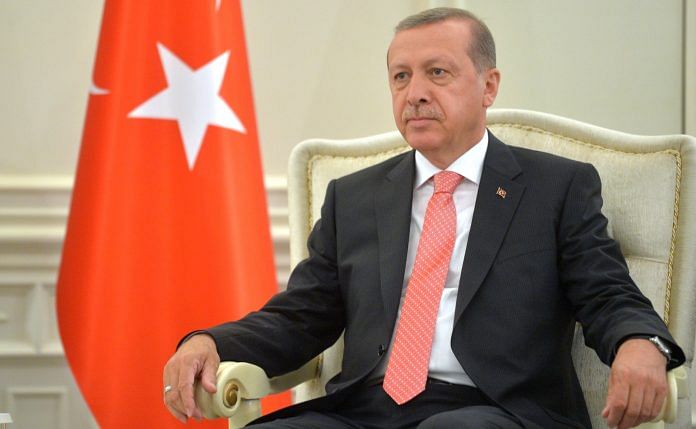In what is widely being seen as a move to solidify power and cement his own position in the country, President Recep Tayyip Erdogan has called for elections to be held on June 24 — a year and a half earlier than expected. The war on the Korean peninsula could finally be coming to an end, as South Korea has confirmed diplomatic talks with North Korea about negotiating a formal peace treaty. Finally, as Raul Castro retires, Cuba has a new leader who could prove to be better than his predecessors.
Rushed elections
Citing the situation in Syria and Iraq and economic stability as reasons, President Erdogan has called for early elections, ahead of the regular general elections scheduled for November 2019. “Mr. Erdogan has long made it clear that he intended to run for re-election — he has led the country for 15 years, first as prime minister, then as president — and speculation had been rife for months that he would call elections early,” reports Carlotta Gall in the New York Times.
Turkey has been in a state of emergency since July 2016. “But Mr. Erdogan’s abrupt move seemed intended to seize a ripe moment — he remains the country’s most popular politician, with some 40 percent support — to consolidate his powers at a time when domestic politics in Turkey and international trends seem to favor leaders in his autocratic style.”
“The elections, both presidential and parliamentary, will bring forward Turkey’s transition to a presidential system under which the president will gain still more authority, the prime minister’s office will be abolished and the powers of Parliament reduced,” Gall writes.
“Mr. Erdogan said that events in Syria and Iraq, both countries in which Turkey has deployed troops, had made a transition to the presidential system more urgent. He also said the economic situation demanded certainty.”
The opposition party, the Republican People’s Party or CHP, was caught off-guard by the announcement and have not yet selected a candidate for president.
Peninsular diplomacy
The ice on the Korean peninsula could finally be thawing, bringing the 65-year-old war to an end. The 1953 armistice halted the war, and now revelations of diplomatic talks give hope that a peace treaty is on the cards.
This week, the White House confirmed that CIA director and Trump’s nominee for secretary of state, Mike Pompeo, held secret face-to-face talks with North Korea’s Kim Jong-un. This direct contact shows how serious the White House is, The Guardian editorialises.
“It is certainly true that the current flurry of engagement follows a period of frenzied escalation, as the US president looked ready for nuclear confrontation. That sequence doesn’t prove that a deal, let alone a good one, is more available now than in the past. North Korea has long wanted to be treated as a peer of the US. Mr Kim is getting that treatment without taking a step closer to dismantling his nuclear capabilities – the primary US demand. North Korea can also deduce from the company Mr Trump keeps that forced regime change in Pyongyang is not far from the president’s mind, or his ear,” the editorial board writes.
“Mr Kim sees nuclear weapons as his insurance policy against US intervention. Mr Trump’s incoherent combination of wildly aggressive rhetoric and diplomatic concession only confirms that view. It is also plausible that Washington hawks do not seriously expect progress and are itching to declare that dialogue has failed and war is a logical next resort.”
“It is, of course, better that the two sides talk peace than threaten war. But it would be a mistake to imagine that a schedule of talks proves wisdom in the White House or assures progress. It is unclear what the US is getting out of this process and unclear whether, beyond relishing the drama, Mr Trump even knows what he wants. This does not look like a sure path towards a safer Korean peninsula.”
The Castros of Cuba
“Give the Castros of Cuba some credit. They are not as repulsive as the Kims of North Korea,” the Economist writes. “Both families have controlled communist dictatorships for decades (the Kims since 1948, the Castros since 1959). But at least the Castros are calling a halt to one-family rule—though not, of course, to one-party rule. This week Raúl Castro, the brother of Fidel Castro, who led the Cuban revolution, will hand the presidency to someone with a different surname.”
“This will be a big moment. Although Raúl Castro lacks the charisma of his late brother, he fought alongside him and succeeded him as president in 2006. With Raúl’s retirement, la generación histórica will give up day-to-day responsibility for governing (though he is expected to remain head of the Communist Party, the most powerful institution, until 2021). His probable heir, Vice-President Miguel Díaz-Canel, is nearly 30 years younger. If the change is merely one of generation and family there will be little to celebrate. Like the despotic Kims, Cuba’s regime keeps its citizens poor and unfree. Many Cubans will now look to the new president to change that.”
“Mr Díaz-Canel, an engineer by training, has sent mixed signals about whether he is a reformer or a reactionary. Whatever his instincts may be, he will be influenced by forces that pull in opposite directions. On the one hand, the economy needs to be unshackled if it is to provide Cubans with better living standards. On the other, the Communist Party is loth to give up control, or to allow the rise of an elite that might compete with it.”



